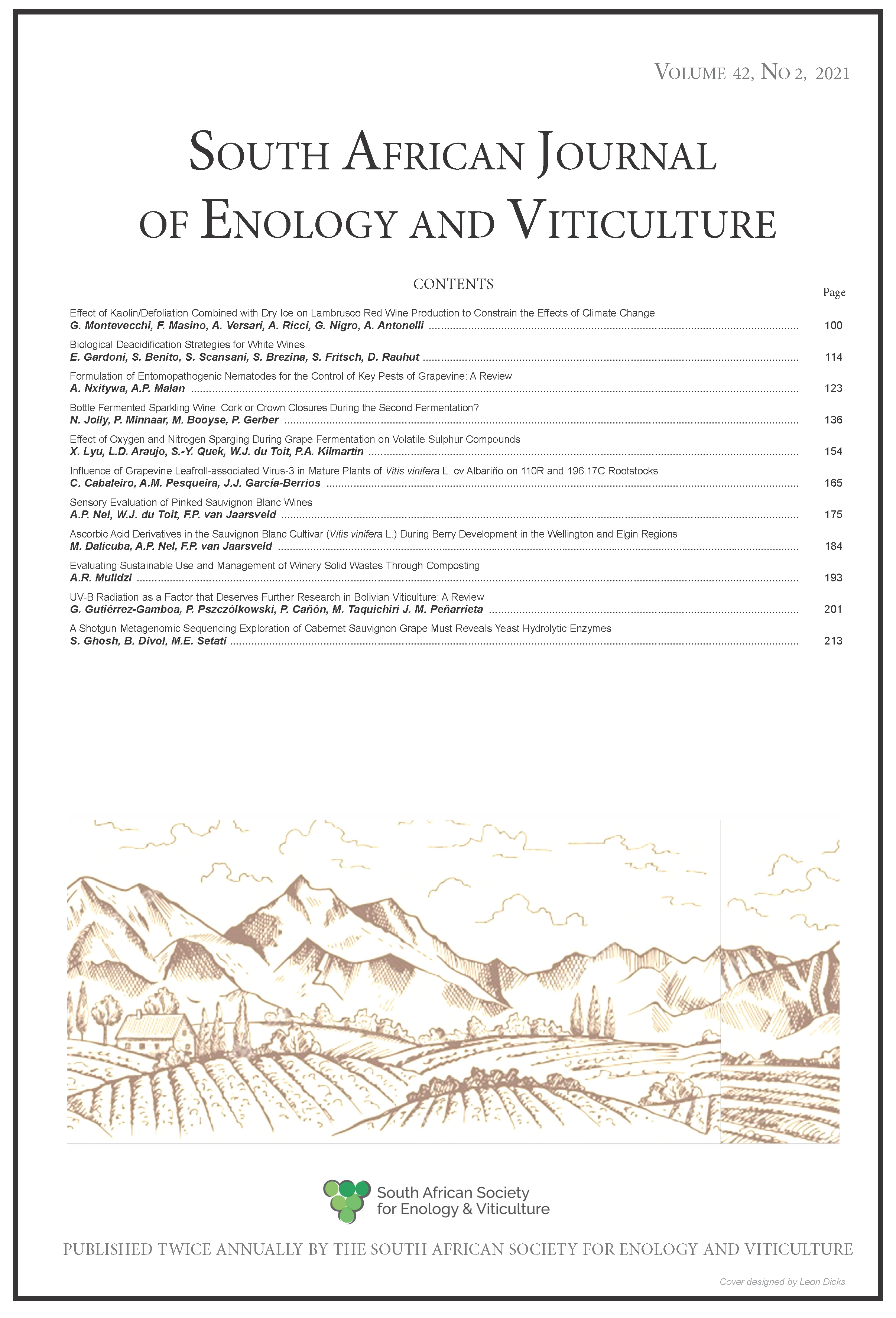Evaluating Sustainable Use and Management of Winery Solid Wastes through Composting
Abstract
Most solid waste produced by South African wineries during wine making processes includes wine filter
wastes derived from perlite and Diatomaceous earth. Wine filter wastes together with grapevine pruning
canes, berry skins, seeds and stalks can be used to make compost as a waste minimization and management
strategy for the wine industry. The objective of the study was to investigate the feasibility of using winery
solid waste and grape products on composting. Wine filter wastes together with grapevine pruning canes
and berry skins, seeds and stalks were successfully used to make compost of good quality. Compost piles
that had between 40% to 50% of wine filter wastes resulted in successful composting. Turning of compost
heaps increased temperatures, which was a positive factor during composting. Furthermore, some compost
parameters are likely to change from season to season as composting weather conditions, quantities and
probably also chemical composition of wine filter wastes generated seasonally may vary.
Downloads
Copyright (c) 2021 South African Journal of Enology and Viticulture

This work is licensed under a Creative Commons Attribution-NonCommercial-NoDerivatives 4.0 International License.
A copyright form will be e-mailed to the corresponding author when the manuscript has been accepted for publication.
In principle, the Author agrees to the following when he/she signes the copyright agreement:
I hereby assign to the SOUTH AFRICAN SOCIETY FOR ENOLOGY AND VITICULTURE (SASEV) the copyright of the text, tables, figures, supplementary material, illustrations and other information (the Material) submitted with the manuscript to be published in SOUTH AFRICAN JOURNAL OF ENOLOGY AND VITICULTURE (SAJEV) (the "Article"). The copyright becomes effective from the date the Article has been accepted for publication in SAJEV.
This is an open access journal, and the authors and journal should be properly acknowledged, when works are cited.
Author's may use the publishers version for teaching purposes, in books, theses, dissertations, conferences and conference papers.
A copy of the authors' publishers version may also be hosted on the following websites:
- Non-commercial personal webpage or blog.
- Institutional webpage.
- Authors Institutional Repository.
The following notice should accompany such a posting on the website: This is an electronic version of an article published in SAJEV, Volume XXX, number XXX, pages XXX - XXX, DOI. Authors should also supply a hyperlink to the original paper or indicate where the original paper (www.journals.ac.za/index.php/sajev/) may be found.
Authors publishers version, affiliated with the Stellenbosch University will be automatically deposited in the University's Institutional Repository SUNScholar.
Articles as a whole, may not be re-published with another journal.
The following license applies:
Attribution CC BY-NC-ND 4.0


